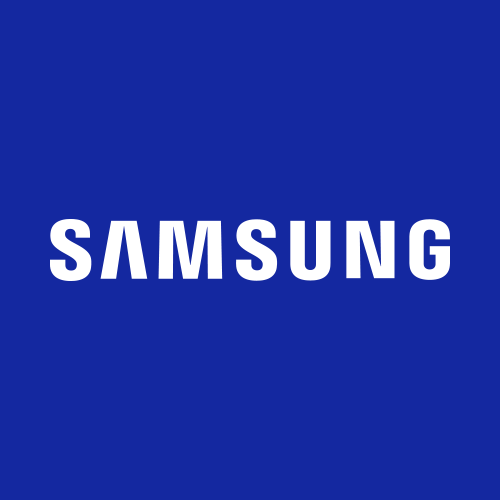I got an HP Elitebook 840 G2 mid-2020; while checking out its hardware, I didn't place the RAM back appropriately. Kept getting BSODs for a while I decided to do a clean install; went well, until I got another after the installation was done, and I realised the issue was HW, not SW!
I replaced it and installed my programmes; being an Android developer coming from a 4 GB RAM HP Elitebook 8440p, I easily appreciated the build speed on my new laptop -- 15 minutes-1 hour got down do a few seconds up to 4 minutes tops.
Besides my apps, I also updated the BIOS [to latest version available officially], and installed other apps from the official site HP EliteBook 840 G2 Notebook PC (ENERGY STAR) Software and Driver Downloads | HP® Customer Support.
Things went well, and I got too careful not to install SW where portable options were available, to avoid cluttering the registry, and HDD space.
Recently, I became much too engaged with coding, I opt to add more RAM to make it 16 GB, so I could run the Android emulator besides my Opera browser, and maybe a video or audio now and then, all running simultaneously with dual-channel to my side. But adding more RAM did not really give me much improvement, and that is what clinched it - in my opinion - to something quite besides RAM size -- my laggy PC is not slow because of RAM size, or HDD instead of SSD, but a non-OEM install of Windows 10!
I had to revert to Windows 10 earlier today, after trying out Windows 11 for 29 days without advantages -- besides fancy UI, which meant more slowness.
Specs::
HP Elitebook 840 G2 Notebook PC Product Specifications | HP® Customer Support
Trivia:
Finally... lengthy as my write-up seems, I hope to get at least a reader who suggests successful solution(s). Thanks!
I replaced it and installed my programmes; being an Android developer coming from a 4 GB RAM HP Elitebook 8440p, I easily appreciated the build speed on my new laptop -- 15 minutes-1 hour got down do a few seconds up to 4 minutes tops.
Besides my apps, I also updated the BIOS [to latest version available officially], and installed other apps from the official site HP EliteBook 840 G2 Notebook PC (ENERGY STAR) Software and Driver Downloads | HP® Customer Support.
Things went well, and I got too careful not to install SW where portable options were available, to avoid cluttering the registry, and HDD space.
Recently, I became much too engaged with coding, I opt to add more RAM to make it 16 GB, so I could run the Android emulator besides my Opera browser, and maybe a video or audio now and then, all running simultaneously with dual-channel to my side. But adding more RAM did not really give me much improvement, and that is what clinched it - in my opinion - to something quite besides RAM size -- my laggy PC is not slow because of RAM size, or HDD instead of SSD, but a non-OEM install of Windows 10!
I had to revert to Windows 10 earlier today, after trying out Windows 11 for 29 days without advantages -- besides fancy UI, which meant more slowness.
Specs::
HP Elitebook 840 G2 Notebook PC Product Specifications | HP® Customer Support
- CPU/Processor: 5th Generation Intel Core i5-5200U 2.2 GHz (max turbo frequency 2.7-GHz), 3 MB L3 cache, 15W
- RAM: 16 GB DDR3L SDRAM (1600 MHz) [memtest86 reported OK when tested at upgrade]
- HDD: 1 TB [Hard Disk Sentinel reports 100% Health]
- GPU: AMD Radeon R7 M260X
- Windows Specifications
Edition Windows 10 Pro
Version 20H2
Installed on 09/08/2020
OS build 19042.1415
Experience Windows Feature Experience Pack 120.2212.3920.0
Trivia:
I get slow startup; disabling most [3rd-party] start-up programmes did not improve speed.
Synaptics Pointing Device SW responsible for touchpad gestures turns off every now and then, and I have to restart or log out and back in to get it.
Windows explorer starts late (say, 30 secs after pressing Win + E); it sometimes restarts, at which point I have to remember open Windows all over.
PC hangs sometimes, when GPU driver decides to play I'm tired, at which point media players (VLC & mpv) turn blank white, and I have to stop playback or restart to continue playback with video.
I use Driver Booster to update drivers to latest versions.
I update Windows now and then.
I have to follow up my clicks with another reminder click on taskbar (when expanding battery, Wi-Fi,...) or via Start (when starting apps).
I am not ready to install Linux at this moment due to work on projects.
I heard about a method used to tweak non-OEM installs [requiring reinstallation of user's 3rd-party apps] to work fast -- I mean, I am using a 5th generation Intel CPU, and am faster than Windows Explorer when navigating directories -- but I have not been so lucky to find it on the net.
Finally... lengthy as my write-up seems, I hope to get at least a reader who suggests successful solution(s). Thanks!
Last edited:



